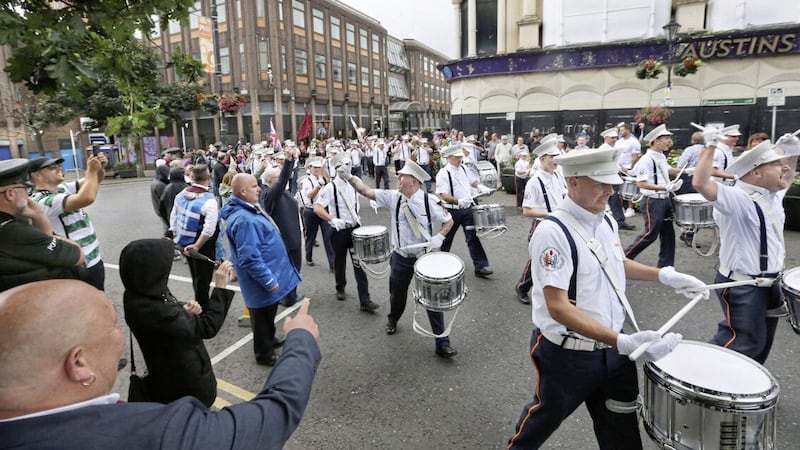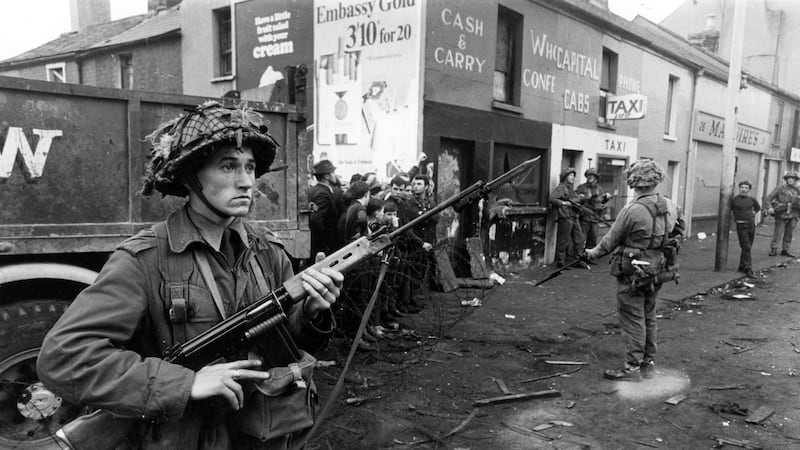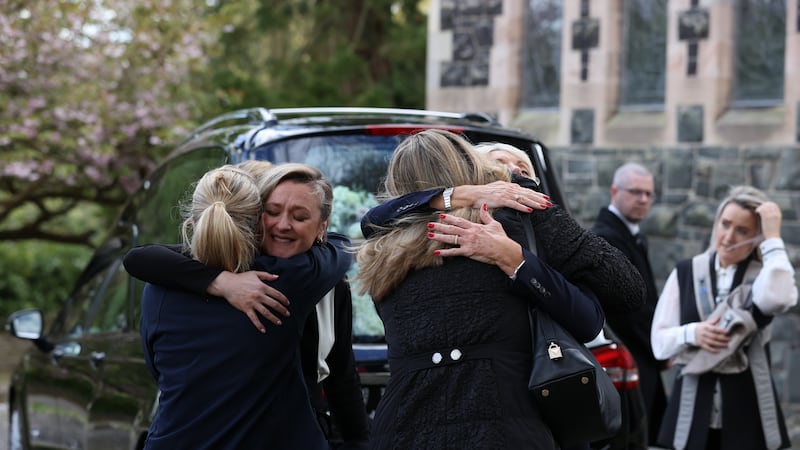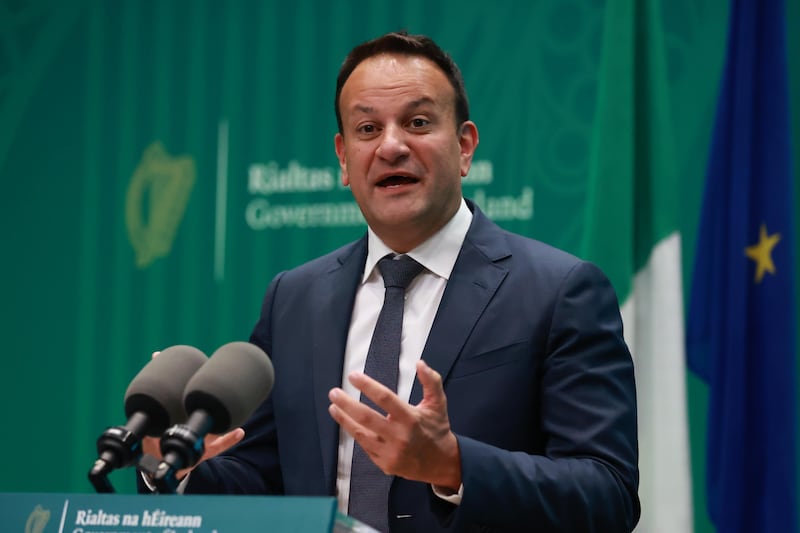"How can Tourism NI go anywhere near something which celebrates [and] rejoices in an organisation which brutalised so many people?"
The words of Stephen Nolan on his BBC Radio Ulster programme on the morning of Monday August 14.
The show was broadcast 48 hours after scores of loyalist bands descended upon the overwhelmingly nationalist city of Derry for the annual Apprentice Boys Relief of Derry parade.
Many of those bands are far from shy about their loyalist paramilitary affiliations, and on the day bands played songs including explicitly sectarian anthems.
One band was filmed playing the Billy Boys, which includes the lyrics "We're up to our knees in Fenian blood, surrender or you'll die" whilst parading inside the walls of the city – well within earshot of local nationalist residents.
Another was recorded playing the Famine Song, mocking the death of a million Irish men, women and children.
Band members were recorded hurling sectarian abuse at onlookers whilst a local businessman suffered a horrific sectarian assault at the hands of a loyalist bandsman after objecting to him urinating on the side of his premises.
Read more:
Patrick Murphy: 'Up the Ra' chants are occupational therapy for the unthinking
Centenary stone a monument to failure and political dysfunction
Chris Donnelly: Helping others is about 'lifting the scales from our eyes, seeing what's important'
The Shankill Protestant Boys, a blood and thunder band openly boastful of its affiliation with the UVF, participated in the parade. Their anthem is "We're coming down the road" which menacingly proclaims that message as delivered by "the volunteers of the UVF".
The DUP's Edwin Poots labelled the day's proceedings as a "great event" whilst his party colleague, Jonathan Buckley, tweeted that it was "a fantastic showcase of our rich culture and history".
During his programme on the subsequent Monday morning, Stephen Nolan had harsh words for the event organisers, claiming "they couldn't help themselves" when facilitating the playing of the contentious music, also wondering if it was permitted in order "to rub the victims' noses in their pain?"
See what I did there?
Whilst all of the quotes attributed to Mr Nolan are accurate, he was not addressing the subject of the litany of sectarian incidents and provocative playing of sectarian songs by multiple bands in Derry on the preceding Saturday, but rather the playing of a solitary song by the Wolfe Tones in a Falls Park concert in the middle of republican west Belfast the subsequent day.
In order to prove a point being made about victims being 'retraumatised' due to the playing of music in the Falls Park, Stephen Nolan proceeded to bring guests onto his show over a successive period of days who were victims of IRA violence.
Yet if it is truly the case that a single song played on an evening of music served up in a concert in the Falls Park, far from any interface, has the potential to retraumatise victims, then logic would dictate that every loyalist band parade – whether on the Shankill Road, Lisburn Road or the middle of Bangor or Newry – equally must be the cause of many victims being retraumatised, something which would put the BBC's decision to annually provide extended television highlight coverage of the Twelfth parades firmly in the spotlight.
There is an obvious contradiction between how the loyalist marching tradition and band culture is accommodated – and so doing is viewed as a sign of progress, tolerance and respect for diversity in our society – whilst the playing of a song in the Falls Park precipitates howls of outrage.
Personally, I am firmly in the Paddy Cullivan camp, the historian who has called for more Wolfe Tone and less Wolfe Tones from republicans.
That's not to say I don't appreciate rebel music, nor that I don't see a place for it. Rather, as I have written in this column before (almost exactly a year ago), singing the Celtic Symphony song may once have been an act of defiance amidst a raging conflict, but it doesn't sit easily in a modern Ireland where the mission of republicans is to build a vision of an inclusive, forward looking and united country.
The charge of "retraumatising victims" has been raised before when unionist politicians and some media voices accused the North Belfast MP, John Finucane, of doing so simply by agreeing to speak at a republican commemoration in June of this year.
Then, as now, it was deployed in a cynical manner which both ignored an obvious hypocrisy – of objecting to republican commemorations whilst approving acts of British Remembrance – whilst also needlessly amplifying polarising views to the detriment of broader community relations.
Truth is, most people today are quite content to live and let live, conscious of the complexities defining our society. That's why the loyal orders continue to march in Derry, warts and all, and why most are simply happy to recognise Féile an Phobail as the remarkable success story it has become.









